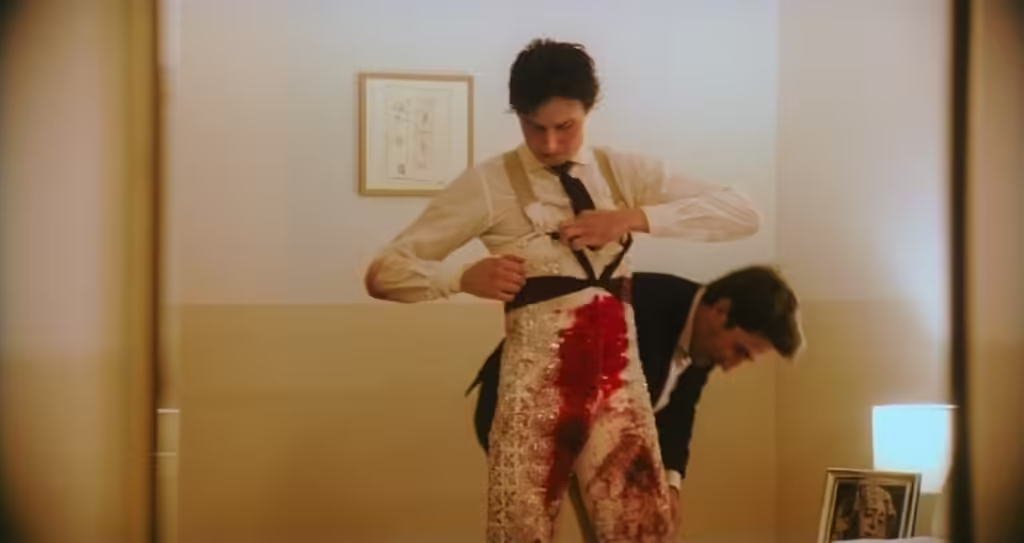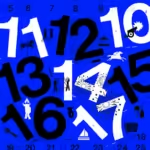Golden Shell for Best Film
This year, the Golden Shell went to “Afternoons of Solitude,” a documentary directed by Albert Serra. This film offers a deep and artistic look at the life of bullfighter Andrés Roca Rey, exploring the day-to-day life of his profession, from the moment he dresses up in lights until the end of the bullfight. “Afternoons of Solitude” not only captured the attention of the jury for its unique approach, but also for the controversy it generated among animal rights groups, who requested its withdrawal from the Official Section due to its bullfighting theme. The film, however, prevailed, standing out for its visual storytelling and its ability to capture the essence of a tradition as deep-rooted as bullfighting.

Special Jury Prize
The Special Jury Prize went to “The Last Showgirl”, a film starring Pamela Anderson. This drama explores the challenges a veteran dancer faces after her show abruptly closes after a 30-year career. The film addresses themes of resilience, personal reinvention, and the difficulties of balancing professional and family life. The recognition of “The Last Showgirl” underlines the importance of stories about improvement and change, fundamental aspects in the life of any artist.
Best Address
This year, the award for best direction was shared between two outstanding filmmakers: Laura Carreira for “On Falling” and Pedro Martín-Calero for “El llanto.” “On Falling” is an intimate exploration of loneliness and isolation in an oppressive work environment, capturing the internal struggle of its protagonist, Aurora, as she tries to find meaning in her life. On the other hand, “El llanto” mixes elements of horror and psychological drama, presenting an immersive narrative that explores fears and traumas shared across generations. Both directors were praised for their unique styles and ability to handle complex subject matter with sensitivity and precision.
Best Performance
Patricia López Arnaiz was awarded best actress for her performance in “Los Flashes.” In this film, López Arnaiz plays Isabel, a woman who confronts her past and buried emotions when her daughter asks her to take care of her sick ex-husband. His performance was acclaimed for its emotional depth and ability to convey the complexity of a character in the midst of a personal crisis.
Pierre Lotin, for his part, received the award for best supporting actor for his role in “When Autumn Falls.” Lotin plays a character who, although secondary, plays a crucial role in the evolution of the story, providing a presence that balances the narrative and adds layers of meaning to the plot.
Best Screenplay
The award for best screenplay went to “When Autumn Falls,” a moving story about Michelle, a grandmother facing the difficulties of family life in a small town in Burgundy. The script stands out for its ability to weave a narrative that, although seemingly simple, is loaded with emotions and complexities that resonate with the audience. The film explores themes such as old age, family and the inevitable passage of time, all with a sensitivity that has been recognized by the jury.
Best Photography
“Bound in Heaven” took the award for best photography, a film that stands out for its powerful visual narrative. The story, which follows a terminally ill man and a woman trapped by violence, uses cinematography not only to tell a story, but to create an immersive atmosphere that immerses the viewer in the characters’ experience. The cinematography in “Bound in Heaven” was acclaimed for its ability to capture beauty and tragedy in every frame, becoming an essential piece of the film’s visual language.
Irizar Award for Basque Cinema
The Irizar Basque Cinema Award went to “Espíritu gitano”, a documentary that offers a unique vision of Charles Chaplin’s Romani heritage. The film, which combines interviews, film excerpts and contributions from contemporary Romani artists, is an eye-opening exploration of identity and cultural heritage. This award highlights the importance of Basque cinema in exploring stories that transcend borders and time, and that connect audiences with universal themes through a local lens.
New Directors Category
In the New Directors category, the award went to “Bagger Drama”, a film that tells the story of a family struggling to stay together after the tragic death of their daughter. The film addresses themes of grief, family responsibility, and the search for meaning in the midst of pain. This category is essential for the festival, as it offers a platform for new talent in the film industry, and “Bagger Drama” stands out for its fresh approach and powerful narrative.
Awards in Horizontes Latinos
In the Latin Horizons section, the award went to “The Jockey,” a film that follows the story of Remo Manfredini, a legendary jockey whose self-destructive behavior threatens to destroy his career and personal life. The film is an intimate portrait of a man’s internal struggle against his demons and search for redemption. Latin American cinema has been an integral part of the San Sebastián Festival, and “El Jockey” is a testament to the power and depth of the stories emerging from this region.
Other Secondary Awards
The San Sebastián Film Festival also awarded a series of secondary awards that recognize the diversity and quality of the productions presented:
- Zabaltegi: “April” by Dea Kulumbegashvili, an experimental exploration of human relationships and perception.
- Audience Award: “All the way up,” by Emmanuel Courcol, a dramatic comedy that deeply connected with the audience.
- the pearls: “The Seed of the Sacred Fig”, by Masha Rasoulof, a drama that addresses themes of faith and resistance.
- Culinary Cinema: “Mugaritz, without bread or dessert”, by Paco Plaza, a documentary that explores creativity and innovation in gastronomy.
- Basque Label Award: “The Guardians”, by Borja de Aguero, a story about the fight to preserve culture and traditions in times of change.
- Another Look Mention: “All We Imagine As Light”, by Payal Kapadi, a film that challenges traditional visual and narrative norms.
- Aecid Spanish Cooperation Award: “Sujo”, by Astrid Rondero and Fernanda Veladez, a moving story about the fight for justice and dignity in Latin America.
Conclusion
The 2024 San Sebastián Film Festival has been a showcase of the diversity and creativity of contemporary cinema. Since the delivery of the shell From Gold to “Afternoons of Solitude” to the recognition of emerging talents and productions from different parts of the world, the festival has reaffirmed its position as a global benchmark. The variety of award-winning films not only reflects artistic quality, but also cinema’s ability to address complex themes and resonate with international audiences. Zinemaldia continues to be a vital space for the discovery and celebration of the best cinema.All the information in the office web



